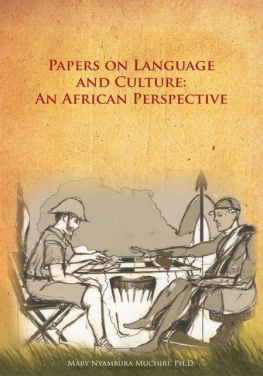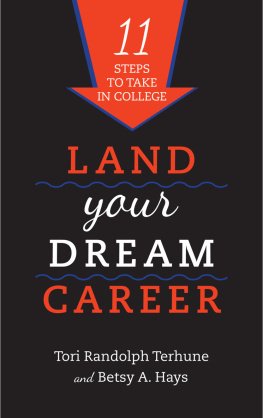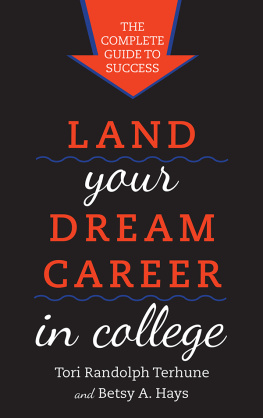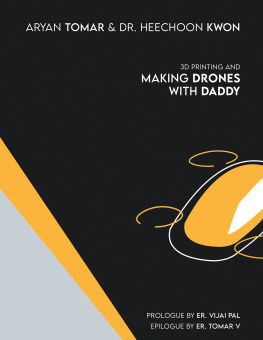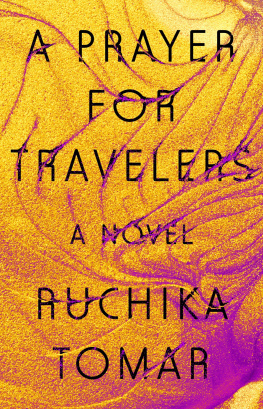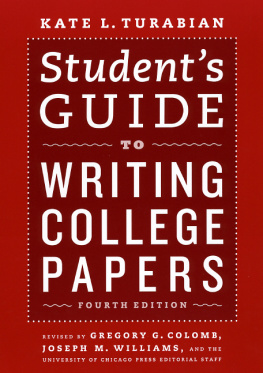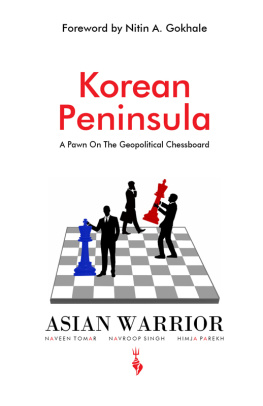The Shadow Scholar
How I Made a Living Helping College Kids Cheat
Dave Tomar

FOR MY B.
Contents
On November 12, 2010, the Chronicle of Higher Education published an article titled The Shadow Scholar, in which, using the pseudonym Ed Dante, I provided some detail on my career as a writer of student papers. The article was met with a colorful mix of outrage, empathy, and recognition. In fact, it went on to become the most read and commented-on article in the Chronicles history. This surprised the living hell out of me.
Apparently, people were shocked by the articles revelations concerning academic dishonesty, student treachery, and professorial incompetence. And here I thought everybody already knew about this kind of stuff. I never made any secret of it. If anybody ever asked me what I did for a living, I told them, I help students cheat.
The article, though, touched off a far-ranging conversation: about academic integrity, about ethics, about the technological implications of cheating, and about the cultural context in which cheating occurs. One week after my article was published, Ed Dante, the Shadow Scholar, was notorious. Websites used hyperbolic phrases like the Ed Dantes of the world and in the age of Ed Dante. Meanwhile, Dave Tomar continued to write in quiet obscurity, plugging away on album reviews and political diatribes that only his friends and a handful of Internet junkies would ever read. Even as the New York Times, the New Yorker, and the National Review offered their respective opinions on Ed Dante, even as radio personalities, television reporters, and independent film producers sought him out, Dave Tomar remained just another anonymous, struggling writer.
I had been helping students cheat for a decade. I wrote every day. I was paying the bills. I was making a living. I was a homebody, and sometimes something just short of a highly social shut-in. I wore the same thing every day: jeans and a wifebeater from a pack. I usually had weed resin under my fingernails. My hair hung down into my eyes. I was kind of grimy. I had a foul mouth and a ton of bad habits. In many ways, I was a writer out of the necessity to do something that didnt force me to interact too much with regular people.
So when Diane Sawyer called looking for an interview, it was almost more than I could handle. The evening that Sawyers people calledthe culmination of a week in which the CBC, NPR, and MSNBC also came looking for interviewsfound me keeled over in my office chair with my face in my hands. I had expressed the sentiment to my agent that I really didnt feel comfortable doing any interviews just then. I wasnt ready. I had no formal training. What business did I have going on Nightline? On the last day of summer a few years earlier, I was walking down the boardwalk hand in hand with my girlfriend when a local newsman approached us with a camera. He asked us what we were doing to savor the last moments of the season. My girlfriend said some cute stuff about miniature golfing and ice cream. I made some nervous joke about seagull incontinence that totally bombed. They literally cropped me out and showed only her on the news. I dont blame them. Shes much prettier than I am.
So I told my agent I didnt want to go on TV. She sent back an e-mail basically saying, Tough titties.
I would be a fool to say no to Diane Sawyer.
Try to recall the moment in The Matrix when Neo is actually shown the Matrix and proceeds to hork green stuff all over the holodeck. That was me.
I was dizzy and queasy, and I could hardly bring myself to speak. One week before the Shadow Scholar article was published, the highlight of my career had been that TomJones.com published my review of Tom Joness new album. I enjoyed a happy existence and had a rich inner life. I loved the woman I was going to marry. I loved my family. I loved my friends. I was physically active, had a lot of hobbies, and found plenty of time to travel, find adventure, and eat gourmet food. Despite a general sense that I wanted to be and had ostensibly failed at becoming a real writer, whatever that means, I always felt that I was living the sweet life. I answered to nobody. I wanted more out of life, for certain, but if this was it, and it never got any better I supposed that it could have been a lot worse.
I wrote constantly, and nobody gave a shit. Things were going great. And as much as I really wanted to get out of it, as much as I needed to get out of it for my health, my sanity, and my integrity as a human being, I hadnt prepared myself for this sort of thing. I enjoyed my privacy. And, quite frankly, when I set out to write my article, it occurred only fleetingly to me that it might be controversial. It seems funny to say, but Id been doing the work for a long time and Id been frank about it with everybody. When I would tell people I got paid to write papers for students who cheat, most were fascinated and had many follow-up questions. But controversial?
My parents knew what I did. My grandmother knew what I did. My friends and their parents knew. The IRS knew. It wasnt a secret. I knew many of them had suspected I was wasting my talents, but they didnt let on about it in conversation. People are too polite for that.
Fortunately, the Internet is a really angry place filled with really angry people, many of whom come positively unglued when not subject to the social consequences of face-to-face interaction. So when I used the forum of the Chronicle to announce my intention to retire from the business, I was rewarded with every kind of response imaginable. There were those who lauded me for my confessions, those who rhetorically shook their heads in pity for me, and those who referred to me as the scum of the earth. There were those who read my attempts at self-effacing humor as arrogance, those who repurposed misconstrued, out-of-context moments from the article to opine from the safety of their blogs, and those who calculated my earnings per hour and (as if I didnt already know) observed that I was making a pittance for my efforts. There were those who referred to me as a sociopath and analogized my behavior to drug dealing and murder.
All good points.
Another point that was not as good, not as perceptive, and quite frankly kind of stupid was that Ed Dante was a sham, that the extent of his work had been exaggerated and that the deficiencies identified among students in his article were simply too extreme to warrant belief. This was a response I had not foreseen.
And yeta lot of people seemed to believe it was true.
During the course of the entire year that I composed this book, you could enter shadow scholar into Google and the very first auto-fill response was shadow scholar hoax. I dont know a thing about Googles secret algorithms, but it certainly made me wonder just how many people thought I didnt exist.
Perhaps we Google what we want to believe.
Ultimately, I did the Diane Sawyer gig. David Muir interviewed me. He was super nice. They put me in shadow and disguised my voice with that creepy A Current Affair drone modulator. During the interview, he asked me if I had any regrets. I told him I had learned so much in my years as a shadow scholar that I wouldnt have traded it for anything.
Indeed, Im pleased to be in a position to share with you in these pages some of the things Ive learned. Take them as you will. Skepticism can be wise, and doubt can be healthy. But denial is another thing altogether.
For the most part, schools would just as soon disagree with everything I have to say here. Thats because theyre afraid. It isnt greed alone that motivates them; they are afraid because they must change and theres no way of knowing what the future holds for them, or for any of us.


